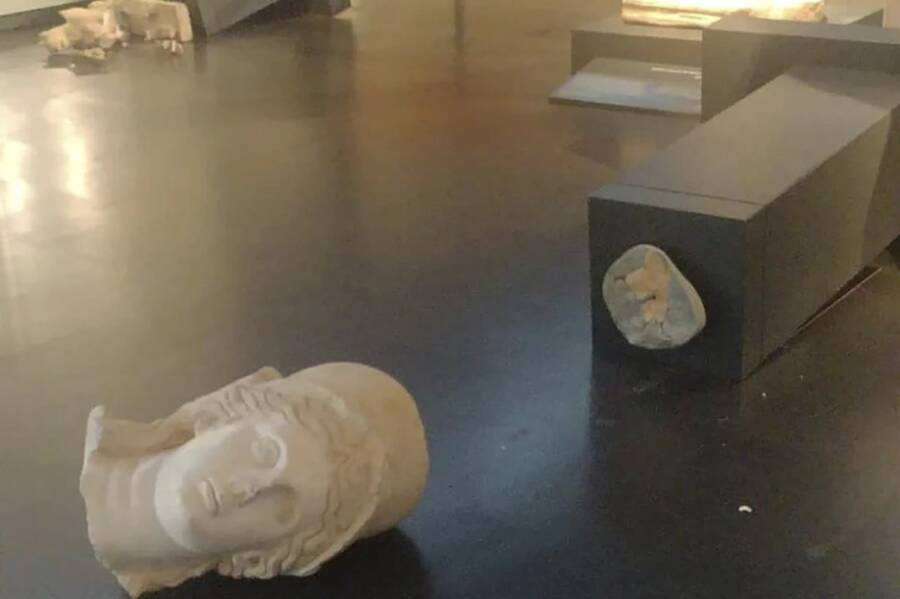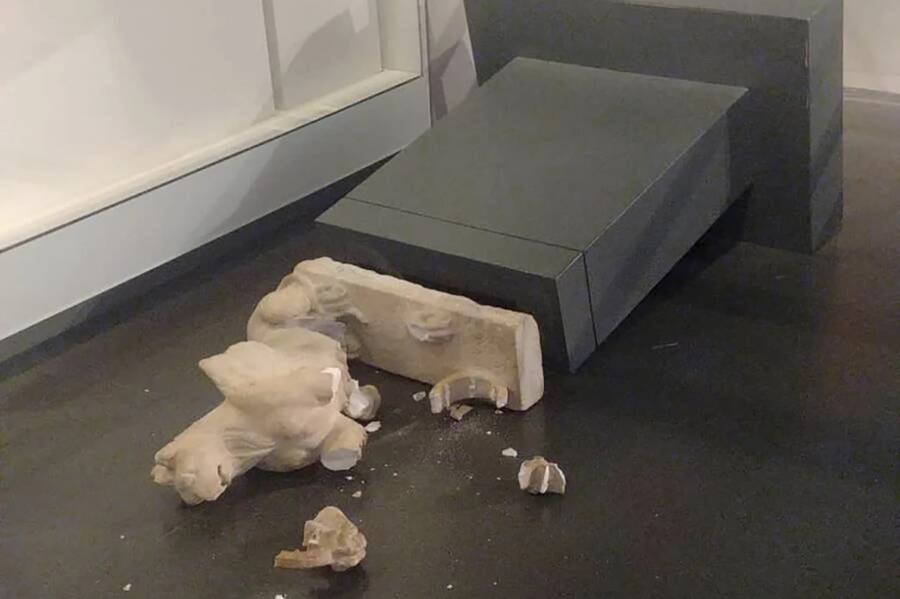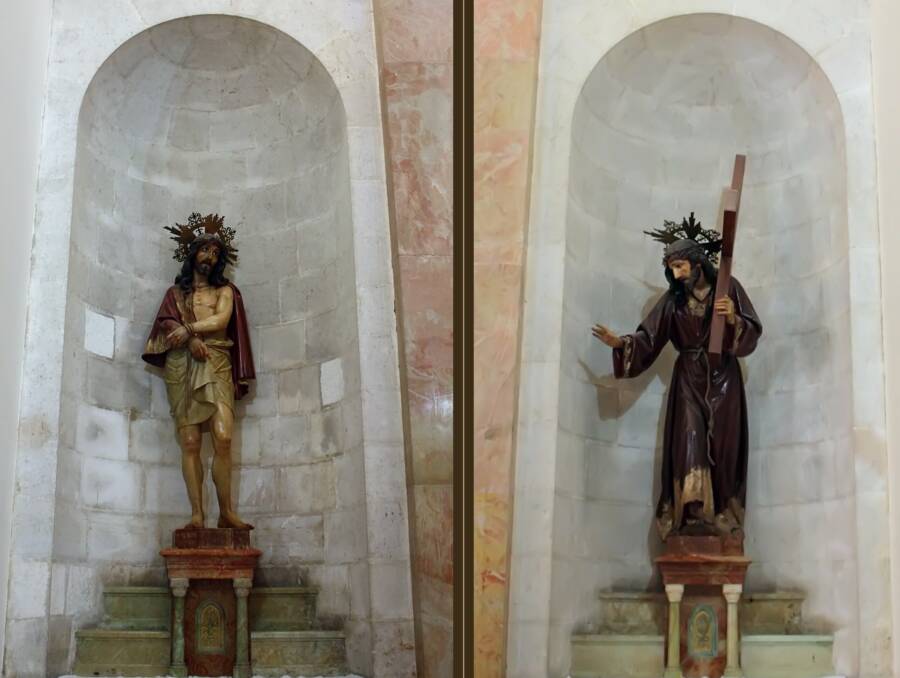The vandal's lawyer claimed he was suffering from "Jerusalem syndrome," a temporary mental condition which caused him to act out against the statues he allegedly saw as "idolatrous."

Israel PoliceImages released by Israel Police show the two ancient Roman statues toppled over at the Israel Museum.
Police in Israel have arrested an American tourist at the Israel Museum in Jerusalem after he shoved two ancient Roman sculptures to the ground, smashing them.
According to the Associated Press, Israeli police arrested the suspect on Oct. 5 and identified him as a 40-year-old American tourist. Initial questioning suggested that the man, also identified as Jewish, had smashed the statues as he considered them “to be idolatrous and contrary to the Torah.”
One sculpture toppled by the man was the head of the Greco-Roman goddess Athena. It was the only surviving portion of a lost stone statue that dated back to the 2nd century C.E. The bust’s neck was reportedly damaged after disconnecting from the pedestal.
The second sculpture took even more damage, shattering into multiple pieces. This statue depicted a griffin with its front paw over the goddess Nemesis’ wheel of fate. It, too, dates back to the 2nd century C.E.

Israel PoliceThe griffin statue, shattered into multiple pieces.
“The damaged statues have been moved to the museum’s conservation lab for professional restoration,” a spokesperson for the institution told Hyperallergic. “The museum’s management, which views this as a troubling and unusual event, condemns all forms of violence and hopes such incidents will not recur.”
Nick Kaufman, the suspect’s lawyer, denied allegations that the vandalism resulted from religious fanaticism. Rather, he said his client had a temporary mental disorder that psychiatrists have labeled “Jerusalem syndrome.”
This condition is a form of disorientation believed to be induced by Jerusalem’s religious magnetism, as it is an important holy site sacred to Christians, Jews, and Muslims. Reportedly, Jerusalem syndrome causes foreign visitors to believe they are figures from the Bible.
While incidents like this are not entirely common, it appears to be something of a recent trend.
In February, the Associated Press reported that another American tourist had knocked over and broken a statue of Jesus in a church in Jerusalem’s Old City.

Wikimedia CommonsThe Jesus statue (left) which was vandalized back in February.
A video that surfaced on social media shortly after the incident showed a man sitting on top of the alleged vandal, who is heard yelling, “you can’t have idols in Jerusalem; this is the holy city.”
Just one month earlier, in January, Jewish teenagers had defaced historical Christian tombstones in a cemetery.
These incidents, notably, came just after the induction of Israel’s new far-right government. Some members of this newly inducted government are ultranationalist and highly religious, occasionally using inflammatory rhetoric.
Recently, unrest in Israel has been growing as religious tensions reach a boiling point and the conflict between Israel and Palestine grows ever more violent.
“It is not a coincidence that the violent dialogue in Israeli society is translated also into these grave acts,” the Custodia Terrae Sanctae, the Catholic Church’s custodians of holy sites in the Holy Land, said in a statement.
Father Nikodemus Schnabel of the Dormition Abbey in Jerusalem took to the platform formerly known as Twitter to vent his frustrations, writing, “Welcome to the new Christian-hating Israel, encouraged and supported by the current government!”
Regardless of the motivations behind the vandalism at the Israel Museum in Jerusalem, Israeli officials are clearly concerned about this growing trend.
“This is a shocking case of the destruction of cultural values,” said Eli Escusido, director of the Israel Antiquities Authority. “We see with concern the fact that cultural values are being destroyed by religiously motivated extremists.”
After reading about this recent case of art vandalism, read about the American tourist who smashed two busts in the Vatican last year after being denied permission to meet the pope. Or, explore life in Jerusalem before Israel through our gallery of 49 photos.





